Niharika Elety’s work behind Tega Collective is a cultural reckoning. It opens the conversation about India’s textile vista– what has been explored and what has yet to reach its potential in the modern world. The designer and founder of the Telugu brand is an advocate for making conscious clothing choices. Dallas-born with an upbringing in Hyderabad, Elety has gathered a name and a following for the conscious activism that she encourages through her strong social media presence, the stepping stone for her new sustainable fashion brand Tega Collective. The label aims to support indigenous textiles and crafts by working in collaboration with craft communities of South India and beyond.
Although a biomedical engineering student, she diverted from her original path when she began developing her interest in the local fashion scene and its relationship with sustainability. Only to find that it inherently works in tandem with India’s age-old textiles. Elety’s influence on fashion’s planet-positive faction gained traction with her online community, who see her as an informative resource, and an authority on the subject. “I started educating people on different regional textiles of India through my Instagram page via body paintings and I saw so many people excited to learn,” reveals Elety.
Read More : Jet setting cross-country? Here’s what to pack in your carry-on
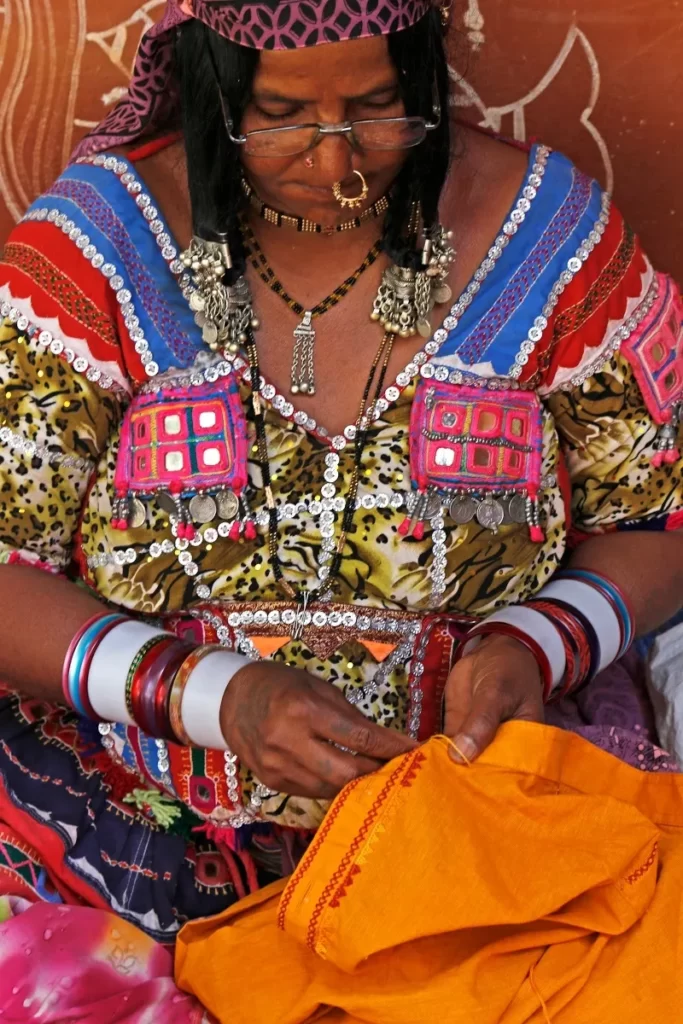
“Our current fear of pattern and colour is due to the pressure to aspire to western standards of wearability and modernity. For indigenous communities colour, pattern, and embroidery are integral to culture, freedom, and self-expression.” — Niha Elety
She highlights the underrepresented South Indian community and its vast culture that has roots entrenched in intricate craftsmanship. “Growing up in both India and the US, I noticed sustainability was practiced and viewed differently in each place. Sustainability is ingrained in South Asia– from the local accessible food systems, homegrown textiles, ancestral practices, and perspectives,” explains Elety.
There’s a key similarity between Elety’s modern revival of indigenous crafts and the design fulcrum of the South Indian pocket. Whether the practice of Tanjore or creating a Kanjivaram sari, the intricacies and skills deployed to produce these traditional techniques are reputed for their refined details. This is also a defining feature of the embroidery technique practised by the Lambani tribe of Karnataka, whose women have crafted the label’s colour-drenched debut collection ‘Alankara’. Relaxed basics that cover button-down shirts, blouses and dresses, get an update in khadi and eri silk with the unique embroidery style. “We asked our artisan partners what colours they loved and three of them stood out– red, periwinkle and matcha green. We created these hues with natural dyes like madder root, indigo and marigold flowers,” she describes.
With most of the brand’s garment operations which include weaving, dyeing and sewing realised in Bengaluru, the collection was sent across to the Lambani artisans of Sandur Kushala Kala Kendra in Ballari. Lambani embroidery combines a variety of fourteen stitches executed in geometric patterns that take cues from botanical designs, emphasised further with 3D elements like cowrie shells, coins and mirrorwork. The bold use of embellishments and colour harmony is the identity of Indian textiles, which brings together the artistry of Lambani embroidery work in a kaleidoscope of colours and textures.
“In a world where western modernity overflows with neutral tones, the Lambani women ensure their walls and dress are adorned with vibrant colours and do not subscribe to modern-day monochromes and minimalism.” — Niha Elety
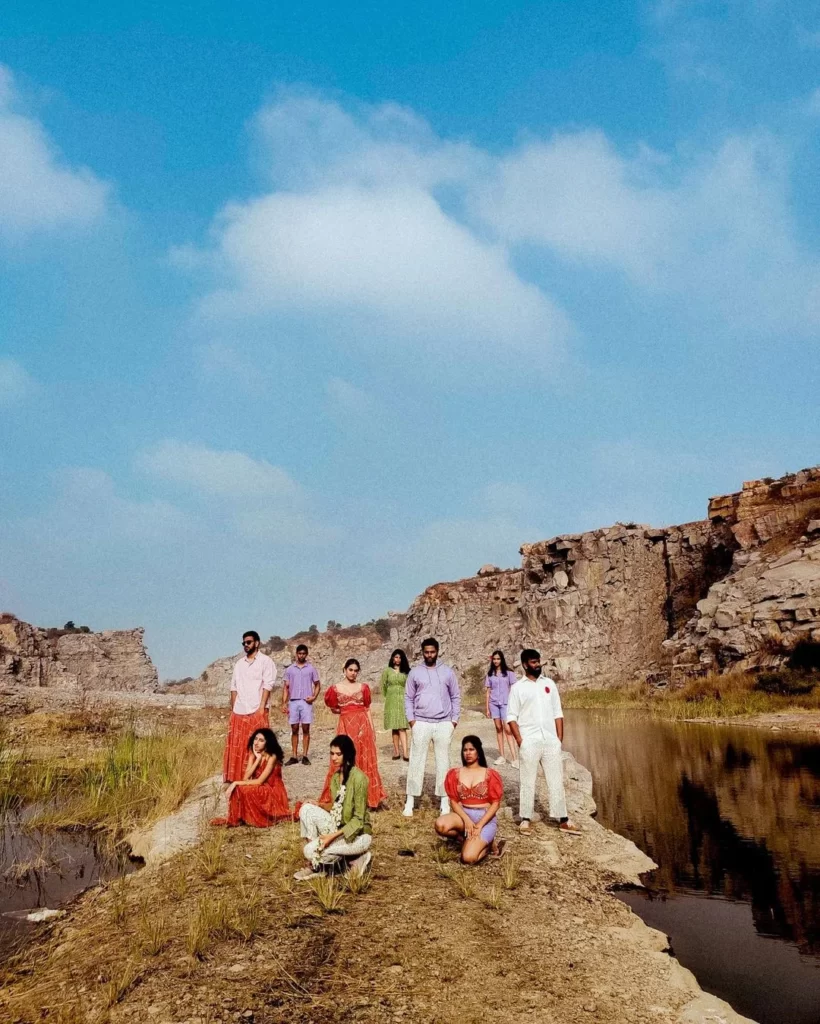
“I wanted our collections to initially focus on communities from those regions. A few friends from the Adivasi Lives Matter group knew of Sandur Kushala Kala Kendra, an NGO in Ballari working with Lambani artisans to create products. I thought it would be incredible to collaborate with them and amplify their work, so I reached out and visited the community. They were very excited to collaborate,” reveals Elety.
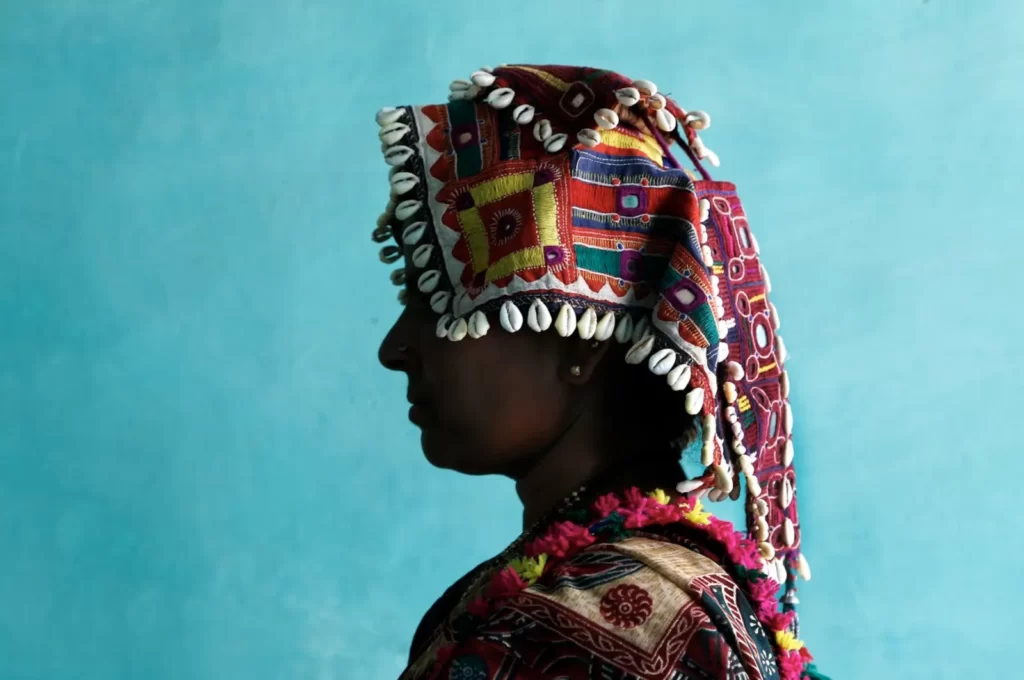
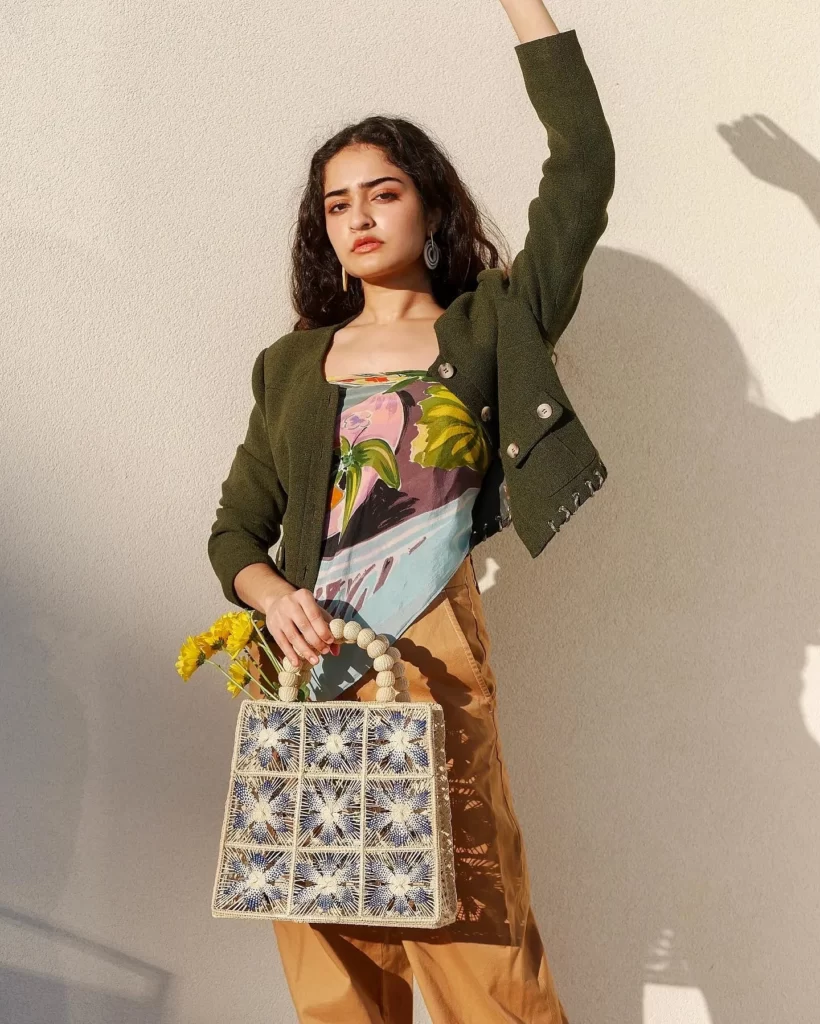
The sense of community is central to the message behind Tega Collective, something that the designer picked up from the household practice of women buying fabrics and presenting them to masterjis for stitching into their desired shape, which Elety describes as an “ecosystem of relationships.” And while the clothing adheres to the modern codes of dress, Elety is keen on reviving not just the indigenous textile practices but also the camaraderie of women gathering together to embroider and knit.
“In a world where western modernity overflows with neutral tones, the Lambani women ensure their walls and dress are adorned with vibrant colours and do not subscribe to modern-day monochromes and minimalism,” she says. With Tega supporting her vocal stance on fashion’s cycle of consumption and actioning change, Elety hopes to foster these nomadic communities around the country, whose crafts have been playing the sustainable game in all their vibrant hues and textures long before the term became the buzzword. “Our current fear of pattern and colour is due to the pressure to aspire to western standards of wearability and modernity. For indigenous communities colour, pattern, and embroidery are integral to culture, freedom, and self-expression. This idea is what inspired our pieces,” finishes the designer, emphasising how this collaborative practice with the Lambani community helped her make fashion a vehicle for self-expression.


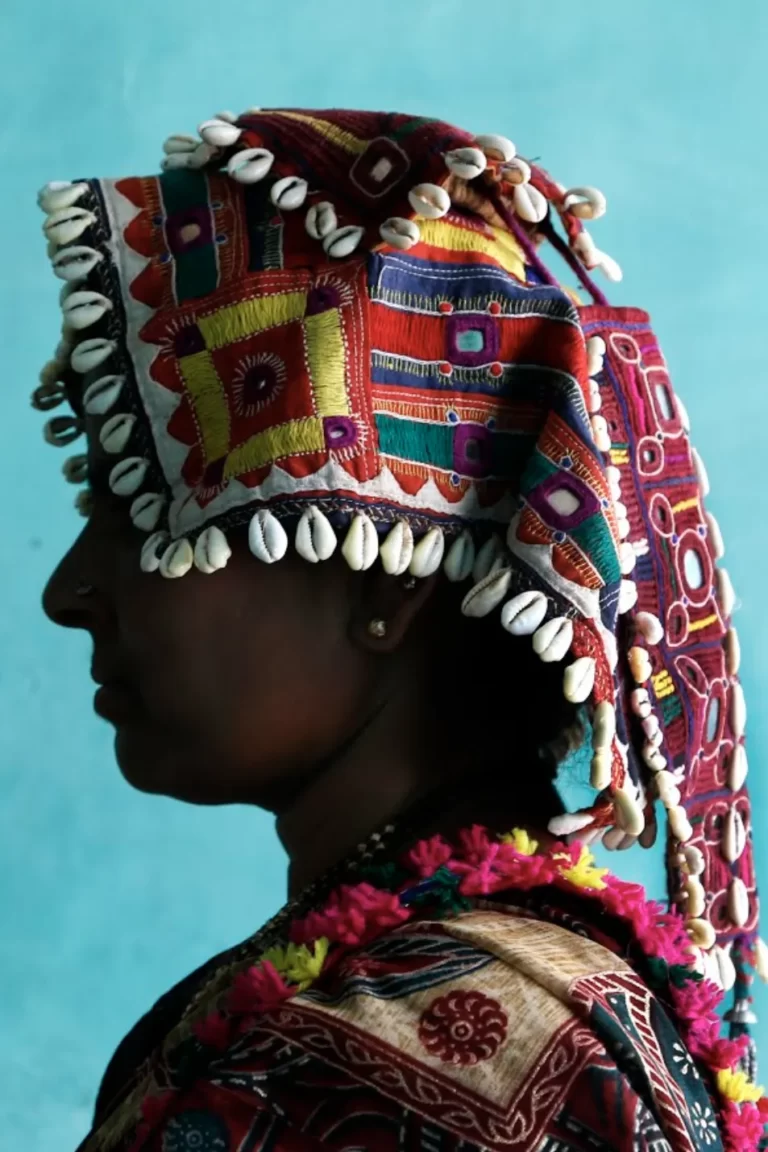
1 Comment
Pingback: We're obsessed with Brad Pitt’s linen skirt - lyfestyle